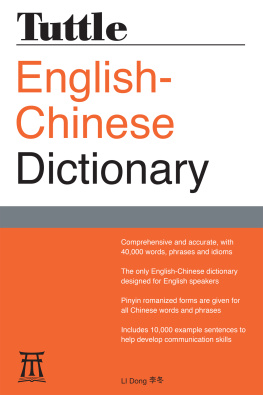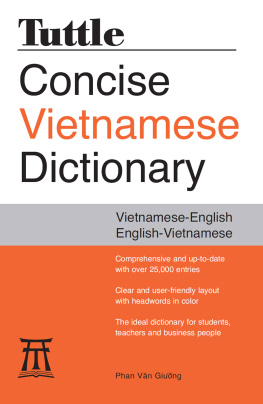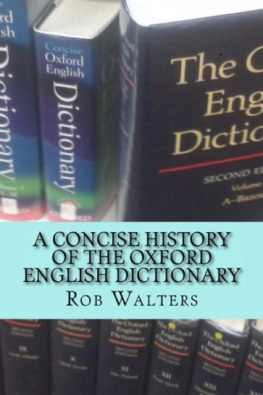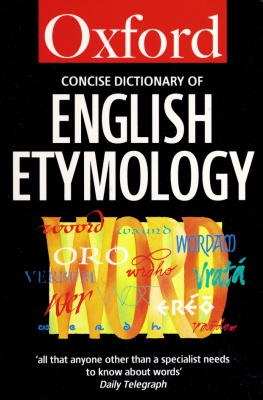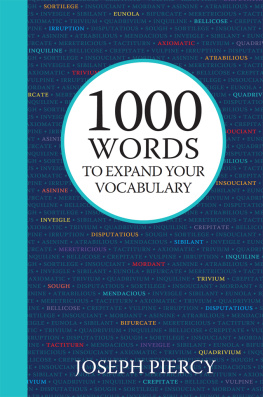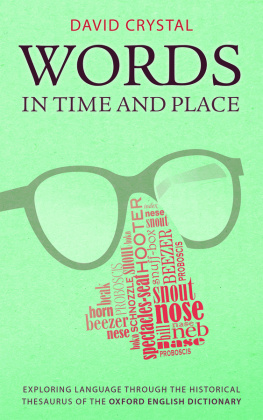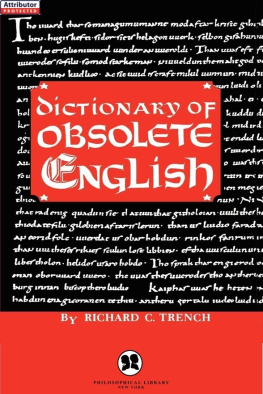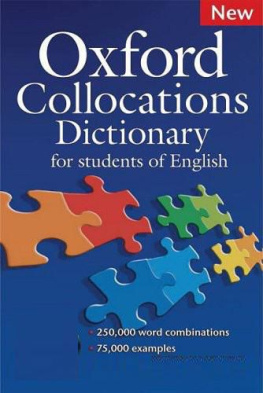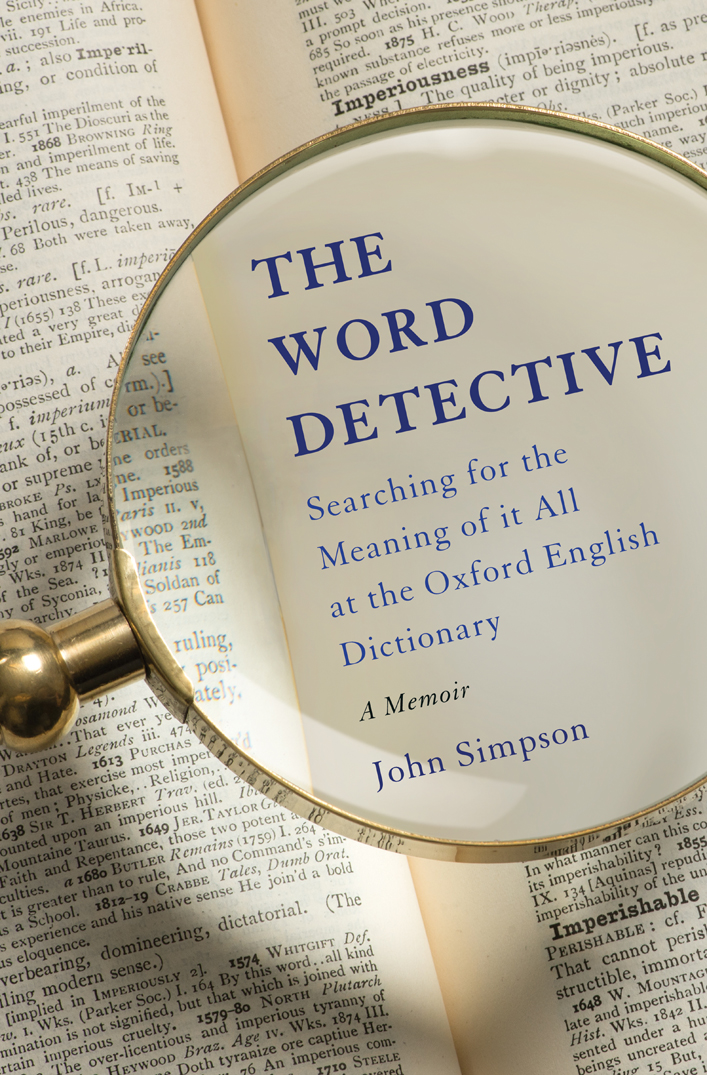Table of Contents
Guide
More praise for
The Word Detective
Can delight be sheer? Can enjoyment be rich? The Oxford English Dictionary on my shelves (very proud possession) sighs now and then as though looking for worthy company. It need be wistful no more. John Simpson, whose distinguished work came to inform those twenty volumes when he was chief editor, has written one of the loveliest, most engaging, most informing, humorously dry, and alluring companion books ever to serve the English language. When my envy has come under control I shall buyfor my nightstanda second copy of The Word Detective. And yes, it is full of sheer delight and rich enjoyment.
Frank Delaney, novelist and broadcaster
A perfect title. According to the OED, a Sherlock is someone who investigates mysteries or shows great perceptiveness. This aptly summarizes Sherlock Simpson, who tells the inside story of how that great dictionary has come to be written, illustrated by illuminating and sometimes daring word histories, and grounded in an engaging and moving autobiography. Anyone fascinated by words and their history will love this informative and revealing memoir. We dont normally associate dictionaries with drama. This will change your mind.
David Crystal, author of The Cambridge Encyclopedia of the English Language
John Simpsons The Word Detective is a warm, wry, and thoroughly engrossing memoir of what a life in lexicography truly entails, with plenty of time to stop and look at some of the words hes encountered along the way.
Erin McKean, founder, Wordnik.com
blurb (bl
 : b), v. intr. slang (orig. U.S.). To commend a newly published book. blurber (bl
: b), v. intr. slang (orig. U.S.). To commend a newly published book. blurber (bl
 :b
:b
 (r)), sb. [See prec.] One who blurbs.
(r)), sb. [See prec.] One who blurbs.
Donald Knuth, Stanford University
Inviting, adj., is given two senses by the OED: that which invites or gives invitation, and attractive, alluring, or tempting. Although this superb memoir is not likely to lead you into temptation, it otherwise fits the definition very well. Simpson was a key figure on the editorial team that rescued the OED from obsolescence and ensured its ongoing relevance. They took on the considerable job of bringing the OED online and of adapting it in other ways that have transformed it from a historical monument into an indispensable record of our living language. In similar fashion, this funny, insightful, and really just wonderful book renders Simpsons own past accessible, engaging, and germane. Part social history, part dictionary history, and part personal historywith beguiling etymologies interwoven throughout (computer, deadline, skanking)The Word Detective will appeal to any reader curious about the English language and how it evolves. Simpson is the perfect guide to the OED. I adored this book.
Alena Graedon, author of The Word Exchange


Copyright 2016 by John Simpson
Published by Basic Books, an imprint of Perseus Books, LLC, a subsidiary of Hachette Book Group, Inc.
All rights reserved. Printed in the United States of America. No part of this book may be reproduced in any manner whatsoever without written permission except in the case of brief quotations embodied in critical articles and reviews. For information, address Basic Books, 250 W. 57th St, 15th floor, New York, NY 10107.
Books published by Basic Books are available at special discounts for bulk purchases in the United States by corporations, institutions, and other organizations. For more information, please contact the Special Markets Department at the Perseus Books Group, 2300 Chestnut Street, Suite 200, Philadelphia, PA 19103, or call (800) 810-4145, ext. 5000, or e-mail .
Designed by Cynthia Young
Library of Congress Cataloging-in-Publication Data
Names: Simpson, J. A., 1953 author.
Title: The word detective: searching for the meaning of it all at the Oxford English Dictionary / John Simpson.
Description: New York, NY: Basic Books, [2016] | Includes index.
Identifiers: LCCN 2016025594 (print) | LCCN 2016032211 (ebook) | ISBN 9780465096527 (e-book)
Subjects: LCSH: Simpson, J. A., 1953Biography. | Oxford English dictionary. | LexicographersGreat BritainBiography. | English languageLexicography. | BISAC: BIOGRAPHY & AUTOBIOGRAPHY / Personal Memoirs. | BIOGRAPHY & AUTOBIOGRAPHY / Editors, Journalists, Publishers.
Classification: LCC PE64.S46 A3 2016 (print) | LCC PE64.S46 (ebook) | DDC 423.092 [B]dc23
LC record available at https://lccn.loc.gov/2016025594
10 9 8 7 6 5 4 3 2 1
For Hilary
It wasnt until the day I finished the first draft
that I realised that this was for you.
I should have known earlier.

There are many voices that can be used to tell a story.
These are just a few of them.
CONTENTS
E ver since I started as a cub lexicographer on the majestic Oxford English Dictionary (OED) in 1976, Ive tried to pick away at the stereotypes imposed on lexicographers by the media, by the public, andworse stillby lexicographers themselves. These days, dictionary entries have to be stone-cold sober and analytical, not occasionally spry and whimsical, as they could be in the days of Samuel Johnson (for whom a lexicographer was a writer of dictionaries; a harmless drudge, that busies himself in tracing the original, and detailing the signification of words). And so its hardly surprising that the public perception of lexicographers is of a rather dull, plodding crew caught in an endless cycle running from A to Z, and then often turning tail and scampering right back again to the beginning, as we desperately try to capture minor changes from the fringes of language that need to be assessed and defined. And sadly, these stereotypes arent wholly wrong. Writing a dictionary is, after all, a serious business.
Many books have been written about the OED, almost all of which concentrate on the tussle between the publishers at the University Press in Oxford and the heroic dictionary editors, or alternatively, between the heroic and long-suffering executives of the publishing house and the awkward, argumentative, and closed-minded lexicographers. Thats mainly because those are the facts that you can extract fairly easily from the archives, depending on which tint youve put on your glasses that day. And I suppose theres something to that side of the narrative.
What the archives dont containand what you have no hope of appreciating unless you come at things from another angleis the fun and excitement of historical dictionary work. If you need to, step back a few paces and draw a deep breath. This excitement derives equally from the detective work involved, from recovering information which has been lost for maybe hundreds of years (new etymological stories and connections, new first usages, links that you never knew existed between words), and from seeing exactly how words arise out of the culture and society in which they are used. Because words do tell us about the people and cultures that use them.




